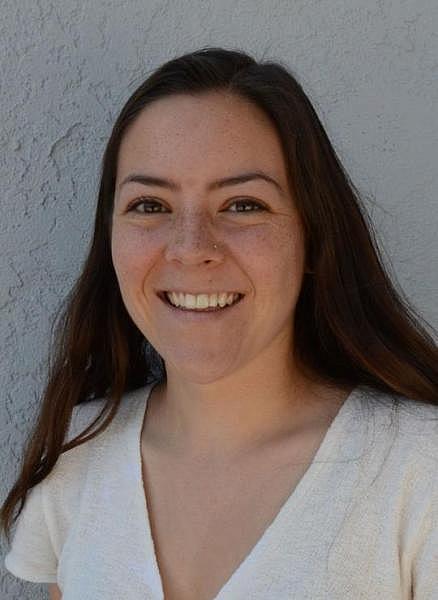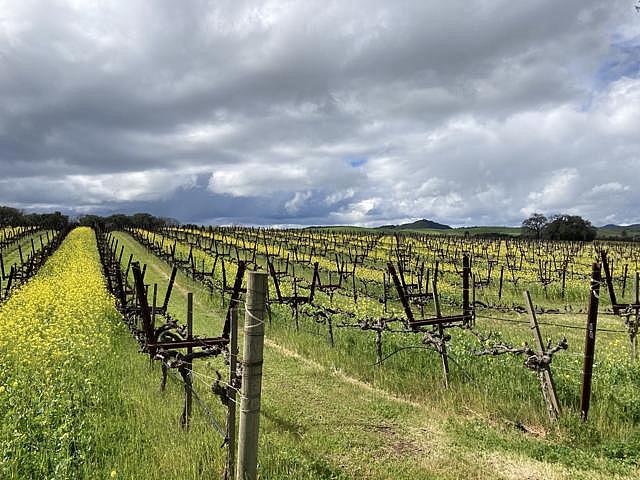It’s been a hell of a year for just about everyone in Napa Valley. Sarah Klearman is the wine industry reporter for The Napa Valley Register. Sean Scully, Register
Voices from the Vineyard: Napa Valley Register launches reporting project on health of North Bay farmworkers
This story is part of a larger project series, "Voices from the Vineyard," led by Sarah Klearman, a 2020 Impact Fellow. She is reporting on how the twin crises of the pandemic and the wildfires have impacted the health of the valley’s farmworkers and their families.
Her other stories include:
Voices from the Vineyard, Part 1: 2020 harvest, cut short by North Bay wildfires, 'devastating' for wellbeing of farmworkers
Voices from the Vineyard, Part 2: Cost complicates access to health care for Napa Valley's farmworkers
Voices from the Vineyard, Part 3: Ahead of another fire season, Napa Valley's farmworkers face unknown health risk from more smoke exposure
Voices of Youth: The Waste of the World: Napa Valley must prioritize the health and personhood of its unhoused, by Rudolph Barragan
Voices of Youth: Showing up and moving forward; Napa's Hispanic community shows strength in time of crisis, by Carolina Padilla
Voices of Youth: Talking health equity: Reflecting on fire season working conditions for Napa Valley's farmworkers, by Paola Leon
Voices from the Vineyard, Part 4: Long quarantines inside Napa County-owned farmworker housing made residents feel isolated, anxious

Vines in a vineyard owned by Hyde in Carneros
Sarah Klearman, Register
A note from Sarah Klearman, the Register’s wine industry reporter:
My colleagues in the Register’s newsroom and I have seen the twin crises of the pandemic and this past season’s wildfires unfold before our very eyes. We’ve covered coronavirus outbreaks in county-owned farmworker housing; spoken with unemployed, mostly blue-collar hospitality workers; reported on renters, many of them part of that same hospitality workforce, struggling to keep up with rent, and with the low-income Spanish Flats residents who lost everything in the Hennessey Fire, some of whom are still struggling, half a year later, to secure permanent housing.
“Disasters have a way of exposing the most vulnerable among us and putting them in harm’s way,” Terence Mulligan, president of the Napa Valley Community Foundation, told me in the course of my reporting.
His statement cut to the core of how I have always understood the mission of community journalism: to give a platform to those whose voices are going unheard.
That’s why in October I applied for a grant from the Impact Fund at the University of Southern California’s Center for Health Journalism. The project, I explained in my pitch, would be a reported series of articles about how the twin crises of the pandemic and the wildfires had impacted the health of the valley’s farmworkers and their families – mentally, physically, financially and emotionally.
I wanted to hear directly from these workers and their families about what they’d been through over the last year. A vast majority of the farmworker population in the North Bay are undocumented, according to Zeke Guzman, a community organizer in Sonoma County. They’re ineligible for government assistance, including unemployment insurance and stimulus payments. For many of these families, there is no safety net to help them out of crisis.
As many as a third of Napa Valley’s grape growers still do not offer their fulltime farmworkers health insurance, I reported last year, a percentage that puts Napa Valley at the forefront of agriculture in general but below the national average. It’s a complex issue: health insurance is of course an expensive endeavor for employers.
And many of the men and women who work in the North Bay’s vineyards are simply doing their best to survive and support their families, according to Herman Varela, a former farmworker who now works as a community outreach coordinator for Dignity Health in Yolo County – a mission that often means these workers aren’t in regular contact with a healthcare provider unless it’s an absolute emergency, even if they do have health insurance.
I’m incredibly grateful to say that I was chosen as a grant recipient by the Center for Health Journalism in January. My initial reporting has taken me as far as Lodi; it has also taken me to the homes of farmworkers only a few blocks away from my own apartment in Napa. Already, it’s opened my eyes to the incredible network of community organizations and individual advocates who are working diligently to support the North Bay’s farmworkers through this unprecedented time.
We’ve named this series ‘Voices from the Vineyard,’ and I’m incredibly excited to say that all of the articles I produce will be translated into print-standard Spanish, thanks to funds from the grant. Funds will also go toward sponsoring a partnership with La Voz del Valle, a long-running radio show hosted by KVON’s Nico de Luna. Nico will be hosting some of my sources – community leaders and advocates – on his show, so that the content of this articles series reach beyond the Register’s audience, which has traditionally been mostly if not exclusively English-speaking.
Voices from the Vineyard will be an ongoing effort through June of this year. If, as a reader, you’d like to follow along, keep an eye out for articles here, or follow me on Twitter @SarahKlearman or Instagram @klearmans.
Alternatively, if you’d like to show your support, please do so by subscribing to your local newspaper. If that’s the Register, you can do that here, and know you have my deep appreciation
[This story was originally published by Napa Valley Register.]
Did you like this story? Your support means a lot! Your tax-deductible donation will advance our mission of supporting journalism as a catalyst for change.

